When it comes to establishing a solid foundation for your business relationships, a well-structured vendor supply contract is essential. This document not only outlines the terms of your agreement but also ensures clarity and trust between both parties. Whether you're a seasoned entrepreneur or just starting out, understanding the nuances of these contracts can significantly impact your operations. If you're ready to dive deeper into crafting the perfect vendor supply contract, keep reading!
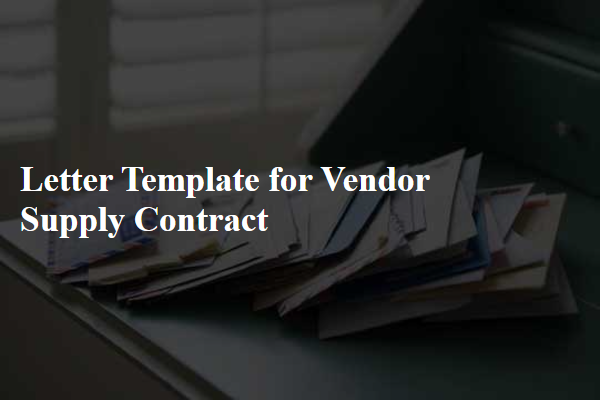
Clear Scope of Supply
A well-defined scope of supply is crucial in vendor supply contracts to ensure clarity and prevent misunderstandings. The contract should specify the exact products required, such as materials (e.g., steel, aluminum), quantities (e.g., 1,000 widgets), delivery timelines (e.g., bi-weekly shipments starting January 1, 2024), and acceptable quality standards (e.g., ISO 9001 certification). Additionally, the locations for delivery (e.g., distribution center in Chicago) must be explicitly mentioned. Payment terms should be outlined clearly, including pricing (e.g., $5 per widget), penalties for late delivery, and any warranties or guarantees provided by the vendor. Furthermore, a robust framework for addressing potential disputes (e.g., high arbitration costs in New York) should be included to protect both parties' interests. Each element contributes to a comprehensive understanding of expectations and responsibilities in the contractual relationship.
Detailed Payment Terms
A detailed payment structure is critical in vendor supply contracts to ensure clarity and prevent disputes. Payment terms typically encompass key elements such as the total contract price (often stipulated in USD), payment schedules (e.g., 30% upfront, 70% upon delivery), and acceptable payment methods (bank transfers, checks, etc.). Additionally, late payment penalties (e.g., 1.5% of overdue amount per month) and discounts for early payment (e.g., 2% discount if paid within 10 days) are often included. Clear specifications regarding invoicing procedures, including timeframes for issuing invoices (usually within 10 days of delivery) and required documentation (such as delivery receipts or quality assurance reports), also play a significant role in maintaining a smooth transaction process.
Delivery and Timelines
Timely delivery is critical in vendor supply contracts, particularly for businesses in fast-paced markets. Vendors must adhere to specified delivery schedules to ensure that inventory levels remain consistent. Standard delivery timelines often range from 3 to 30 days, depending on product types, distance, and production capabilities. Late deliveries can result in production delays, impacting overall operational efficiency and potentially leading to financial losses. It is essential to establish penalties for late deliveries within the contract, often expressed as percentages of the total order value, which incentivizes adherence to deadlines. Clear communication regarding lead times, order processing, and logistical arrangements further facilitates successful partnerships and supply chain reliability.
Quality Assurance Standards
Quality Assurance Standards are critical for maintaining the integrity and reliability of products supplied to businesses, particularly in sectors like manufacturing and food service. Documentation of established quality metrics is essential, defining specifications for raw materials and finished goods. Regular audits are necessary to enforce compliance with industry standards such as ISO 9001, focusing on continuous improvement in quality management systems. Specific performance indicators, including defect rates and delivery times, are quantifiable measures that ensure vendors meet expected service levels. Training programs for employees involved in the production or handling of goods are vital, equipping them with the knowledge to uphold these quality standards consistently.
Termination and Renewal Clauses
Termination clauses in vendor supply contracts outline the conditions under which either party can end the agreement, often including specific terms such as notice periods (typically 30 to 90 days), grounds for termination (like breach of contract or insolvency), and obligations upon termination (settling outstanding payments). Renewal clauses dictate the conditions for extending the contract, which may specify automatic renewal timelines (often annually) or require mutual agreement for renewal. Furthermore, renewal conditions could include adjustments based on performance metrics or market rates, ensuring both parties have clarity on the terms governing continuance of their business relationship.

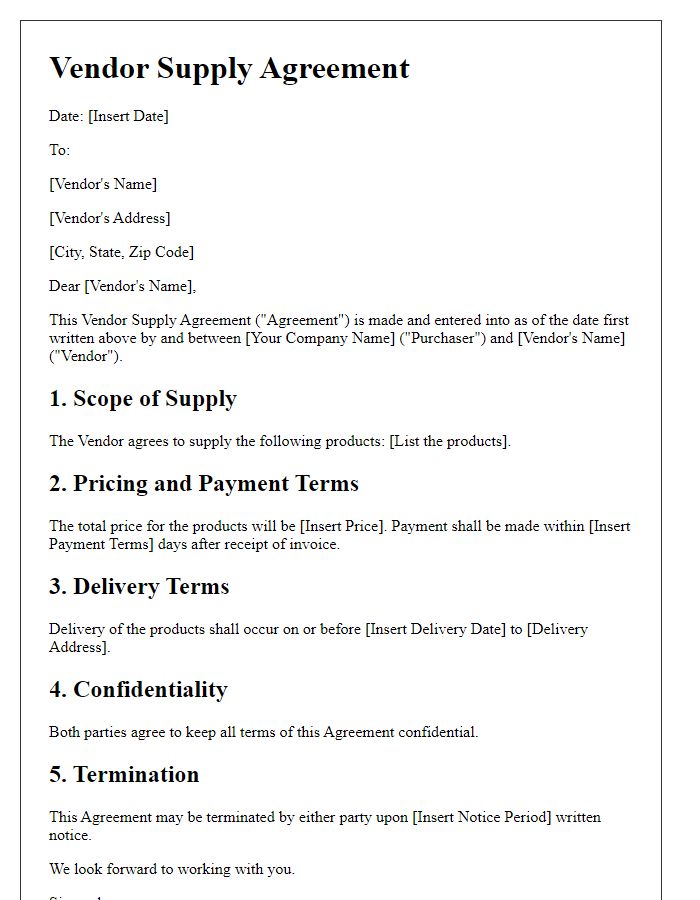
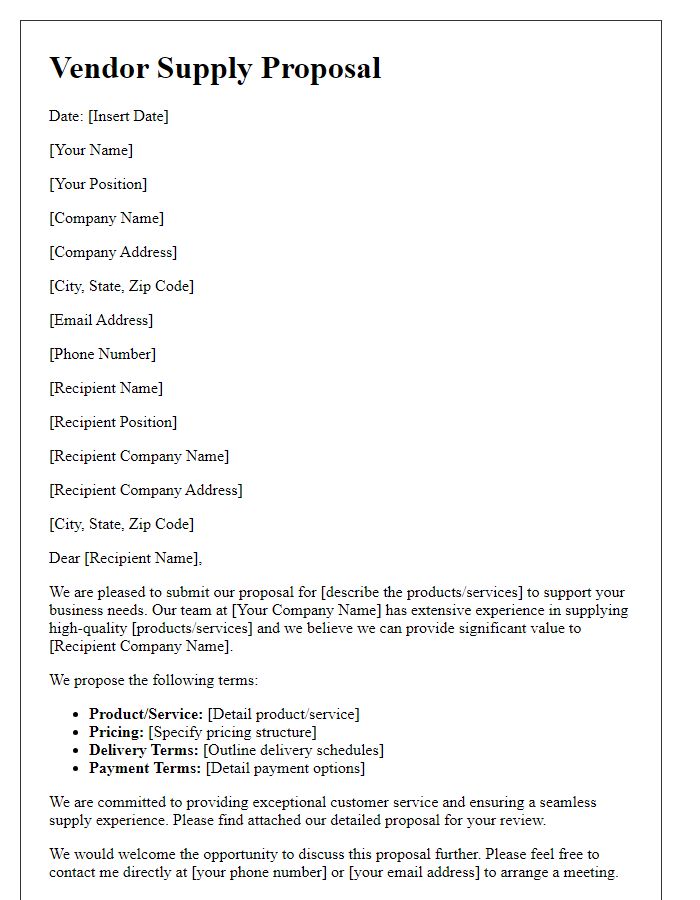
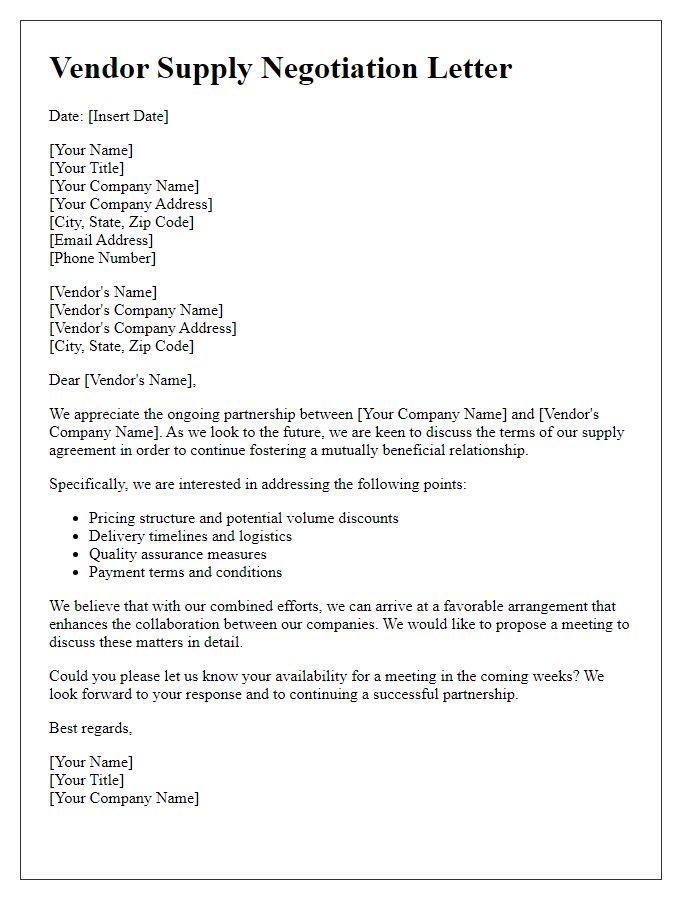
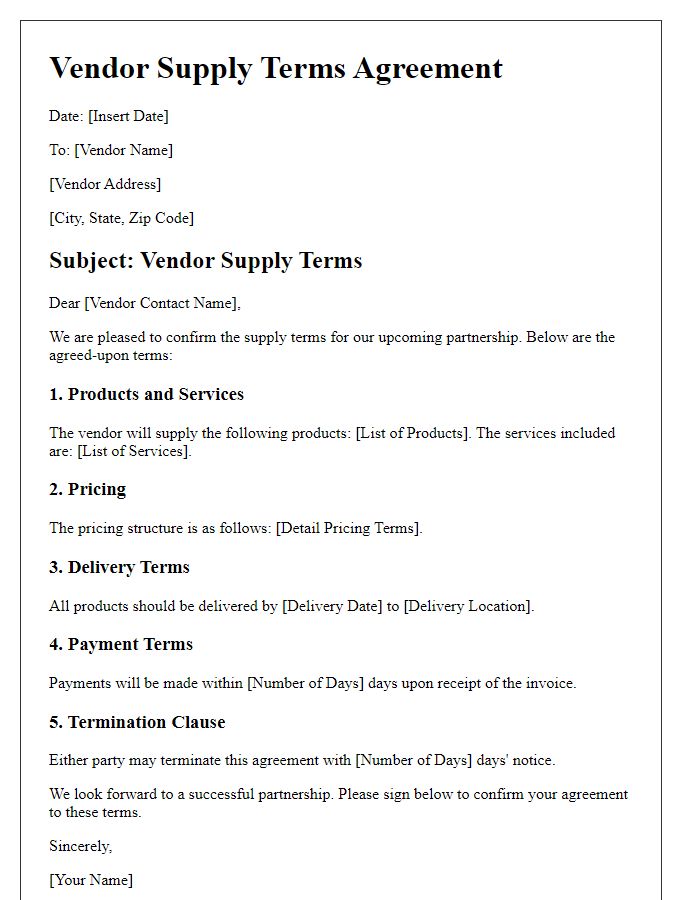
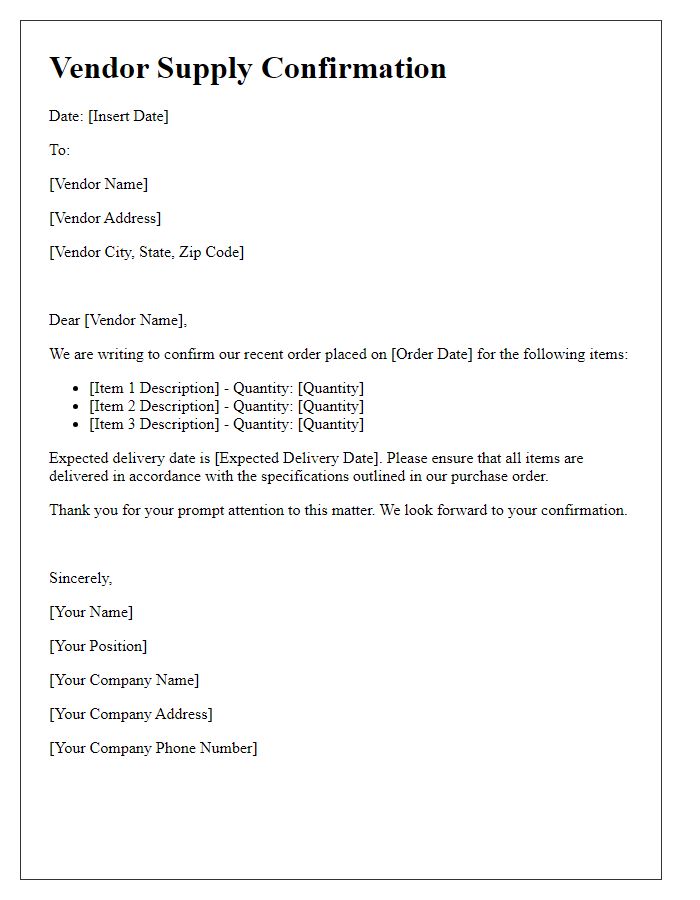
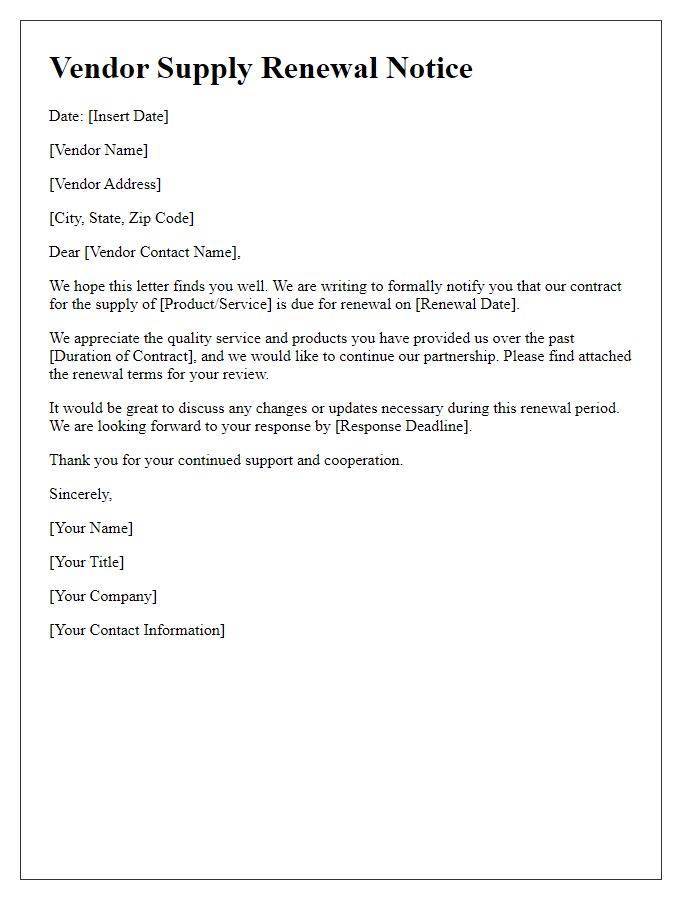
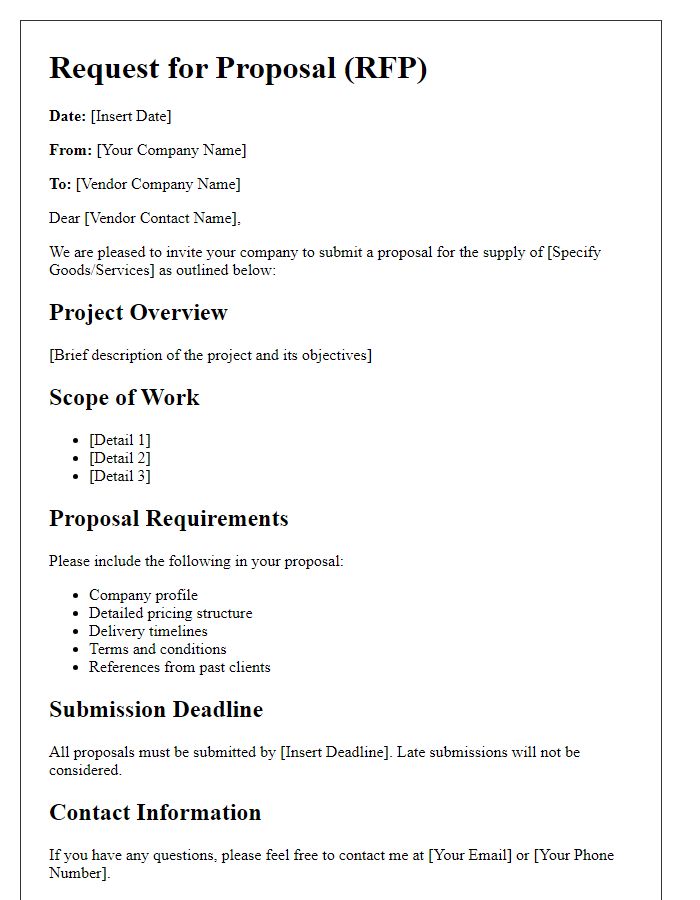
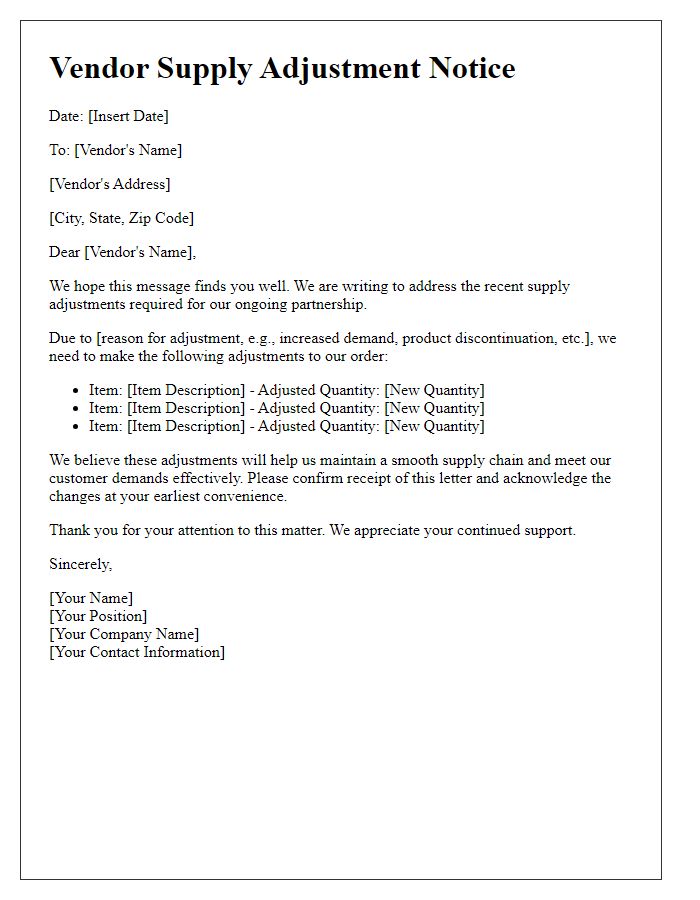
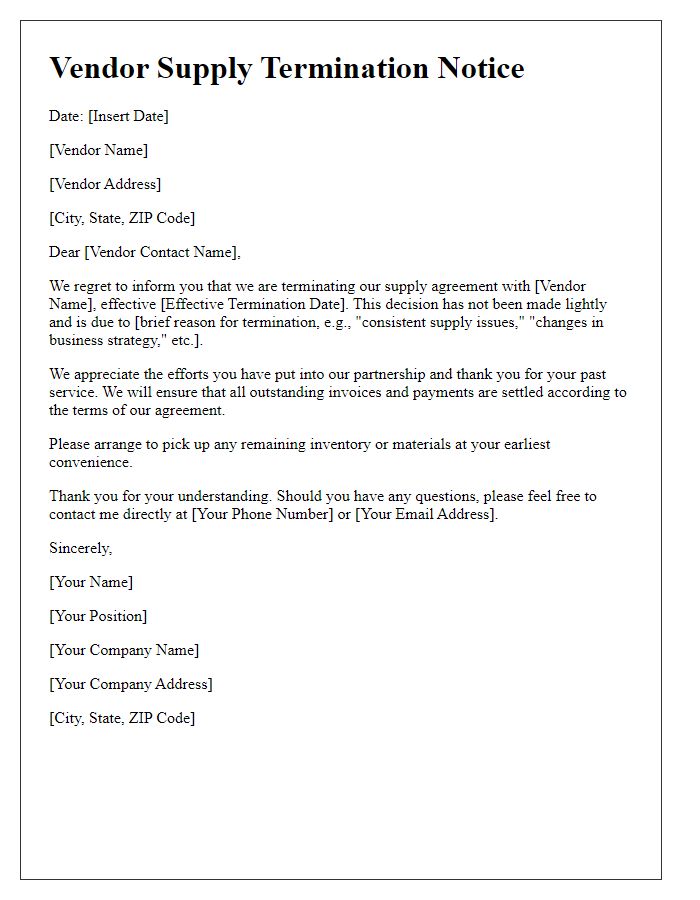
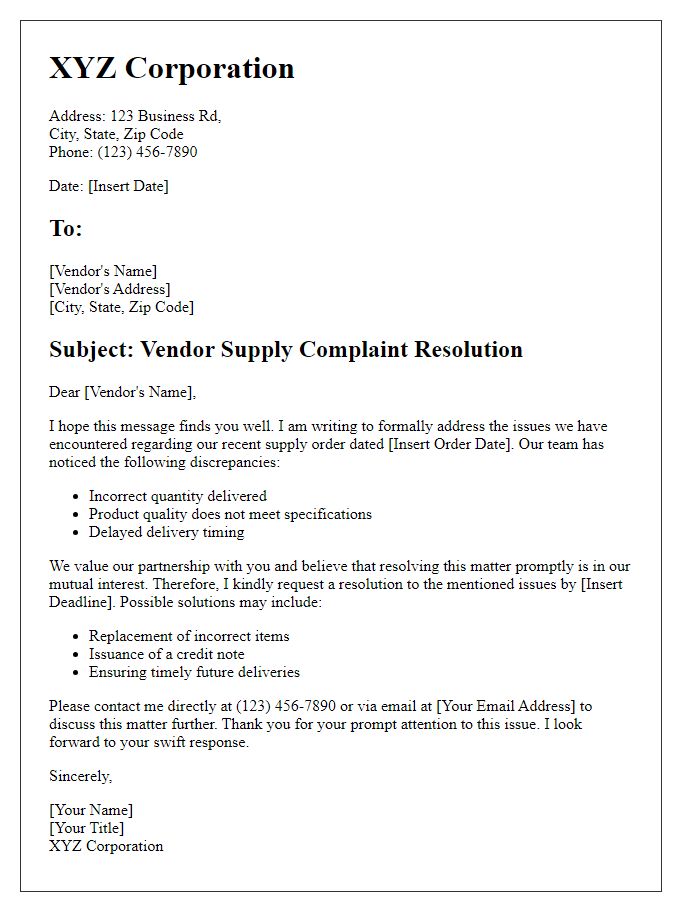

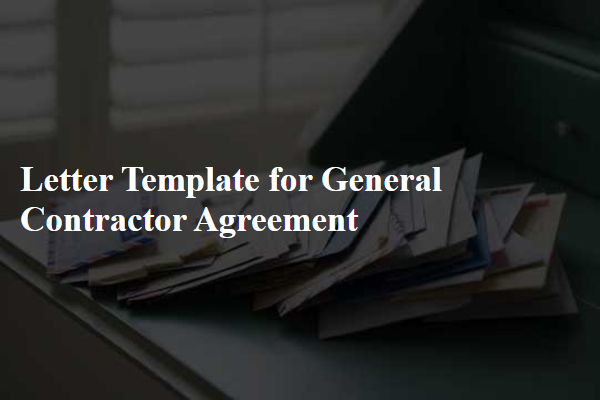
Comments